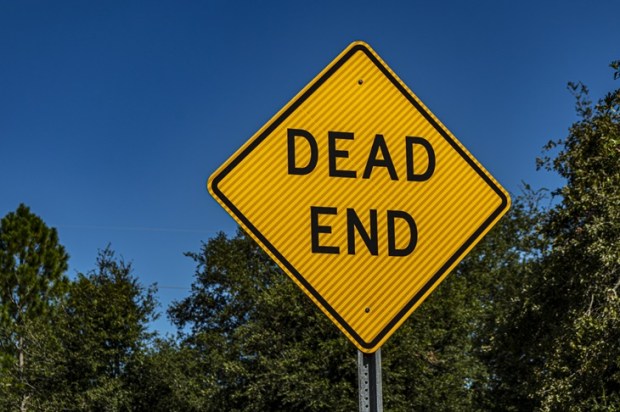Universities around the world have compromised academic rigour to serve Woke maxims. Now, this centuries-old and once highly regarded institution of learning has risked becoming a ‘Netflix campus’ if a concerning trend isn’t reversed.
It was revealed in the Daily Telegraph last week that Sydney’s university academics are opting to present recycled pre-recorded lectures to students, rather than in-person lectures that are crucial to a proper tertiary education.
Apart from the obvious slight directed at justice, where academics are being paid for work they are not doing, it’s alarming that Generation Z is being trained to take a consumerist approach to life and education.
Across culture, there has been a transition from analogue and real-time engagement to remote modes where time is manipulable and choice is endless (think cinema shafted by online binge-streaming and CDs replaced with Spotify). Surely this cultural norm cries out for a university ethos that acts as an antidote to such a fickle mentality?
In Medieval universities, a degree was awarded after students went through a four-to-five-year process of giving a disputation to a series of questions on a text to the satisfaction of the faculty. Not anymore.
According to Robert of Sorbonne, founder of the Sorbonne University in Paris, the academic life of the early universities ‘encouraged readiness of wit and exactness of thought but above all developed that spirit of criticism and methodic doubt to which Western culture and science have owed so much’.
This emphasis on precision and rational argument, particularly through conversation and dialogue, is substantially lost at the hands of ‘convenience’ and ‘safety’. It does not take a genius to realise that the standard of a university education has dropped.
Knowledge has become information to be processed at the click of double-speed. It is filtered, rather than presented as a set of ideas to be engaged with, deliberated on, and mastered. This degradation has rendered education as yet another product to be consumed on a whim in the midst of multi-tasking.
At its core, this is not fundamentally an issue about where the money is going (although this is a minimal requirement of justice), it’s about the higher ideal of a university’s purpose. Technology, in its attempt to make life easier, has made the pursuit of human excellence among younger generations more difficult to attain.
The sacrifice of a whole generation’s ability to ‘reason’ is not the only collateral damage.
More alarming is their inability to relate to one another. Growth and maturity requires being exposed to risk where a person’s views are confronted (rather than facelessly hibernating in the comfort of one’s bedroom). It is only by looking outside ourselves that can we see reality, discover truth, and are equipped to confront, with patience and generosity, the challenges of the workplace.
We are social beings, not disembodied minds.
The university experience was never intended to be an online library (we have plenty of those), or an information exchange; it is a tangible place – a centre of inquiry and discussion where ideas are formed and tested before wisdom is acquired. This sort of learning process helps to form an emotionally mature person.
If videos are left to constitute an education, students could easily become graduates without accruing any knowledge.
Instead, we are paving ourselves a society that upholds ‘tolerance’ as the highest virtue while encouraging a fundamental avoidance of ‘being wrong’. Truth is a declaration learned superficially, where it is never tested or challenged. Students are taught to do things when they want it, in the way they want – it is life ‘on demand’ that has become a sort of mediocre contentedness, never slipping but also never growing.
Taken to their natural end, pre-recorded Zoom lectures breed intellectual selfishness. Preventing this is ultimately an issue of giving students what is their due, and investing some virtue into our future.
Kristen Calandra is Curriculum and Teaching Coordinator, Foundations of Western Civilisation Program at the Institute of Public Affairs.
Got something to add? Join the discussion and comment below.
Get 10 issues for just $10
Subscribe to The Spectator Australia today for the next 10 magazine issues, plus full online access, for just $10.


























Comments
Don't miss out
Join the conversation with other Spectator Australia readers. Subscribe to leave a comment.
SUBSCRIBEAlready a subscriber? Log in